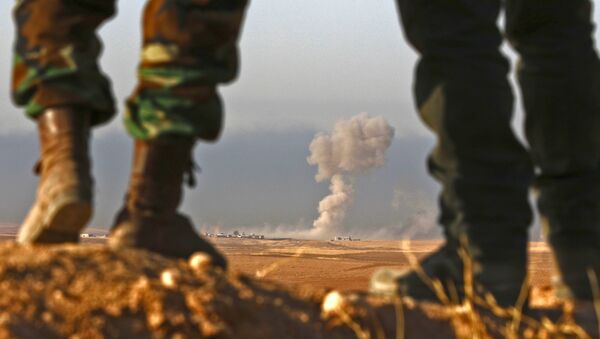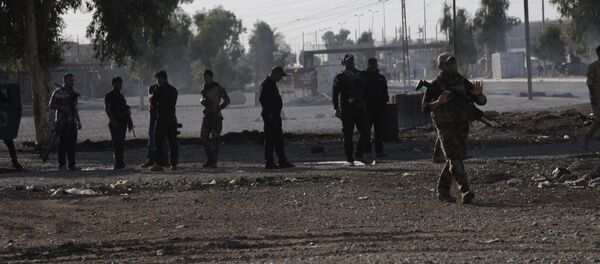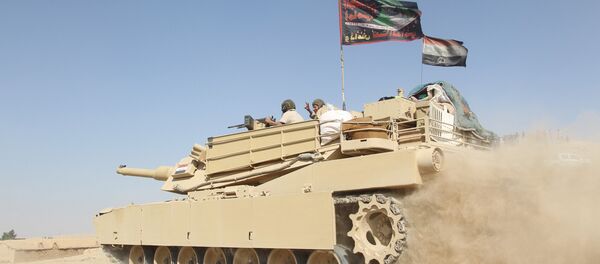Colonel Daniel Manning, deputy director of the Combined Air Operations Center, on Friday told Military.com in a telephone conversation that the intense bombing is what makes this anti-Daesh operation stand out, especially if you take into account that each of these bombs are precision-guided weapons.
"It's a really high rate to be concentrated over one city over a prolonged period of time," he said, adding that the intensity and efficacy of airstrikes depends on many things, such as weather — storms slow down the offensive even though there are sensors helping to look through them — and determination of partner forces.
"You tend to employ more weapons when the weather is better, and when your partner forces are on the move because when they're on the move, they're finding the enemy, forcing the enemy to reveal themselves, and we're there to strike them," Manning explained.
The air coalition conducted more than 191 strikes through November 1, employing over 1,352 weapons for operations, according to Air Forces Central Command spokeswoman Kiley Dougherty.




